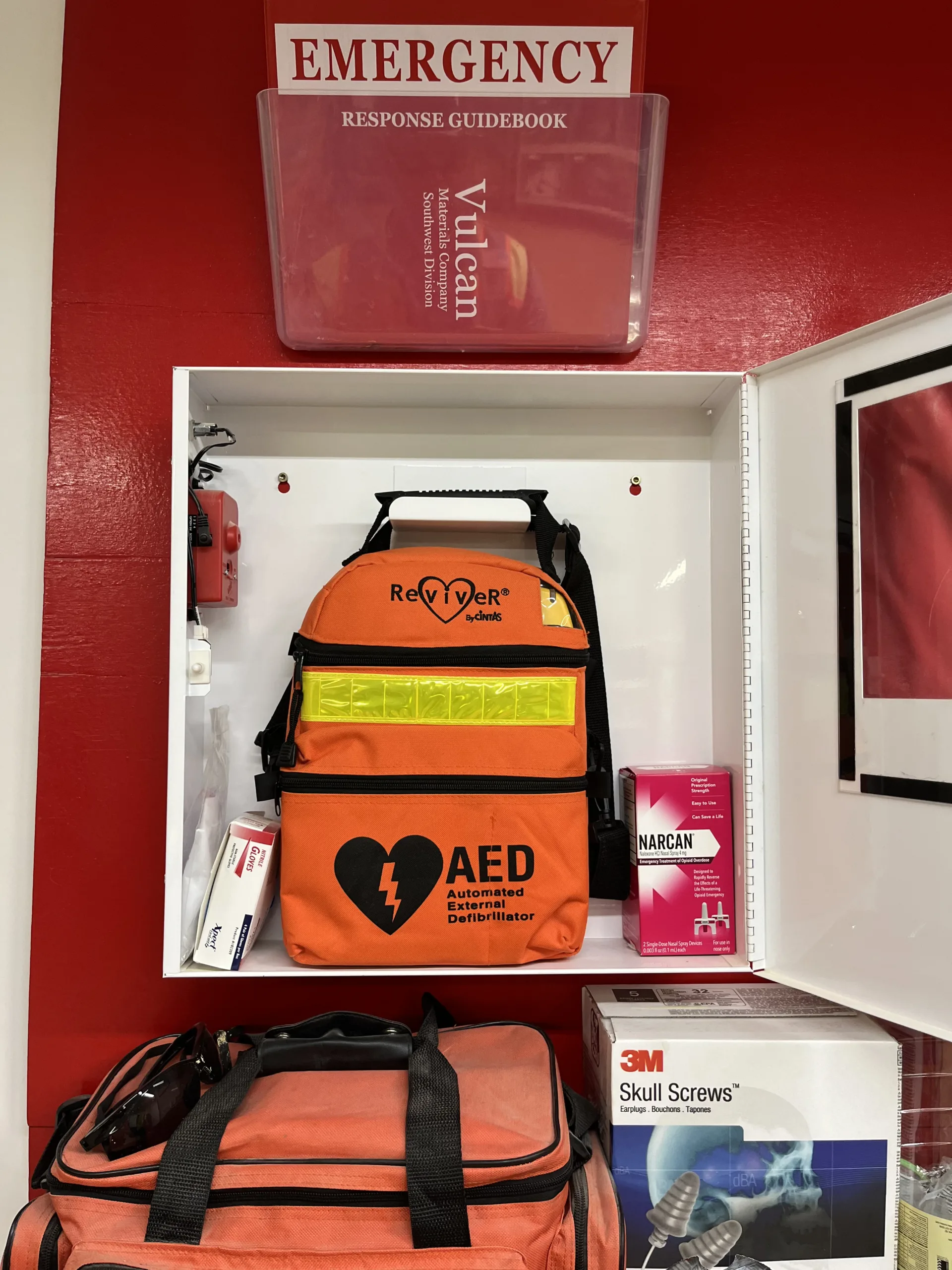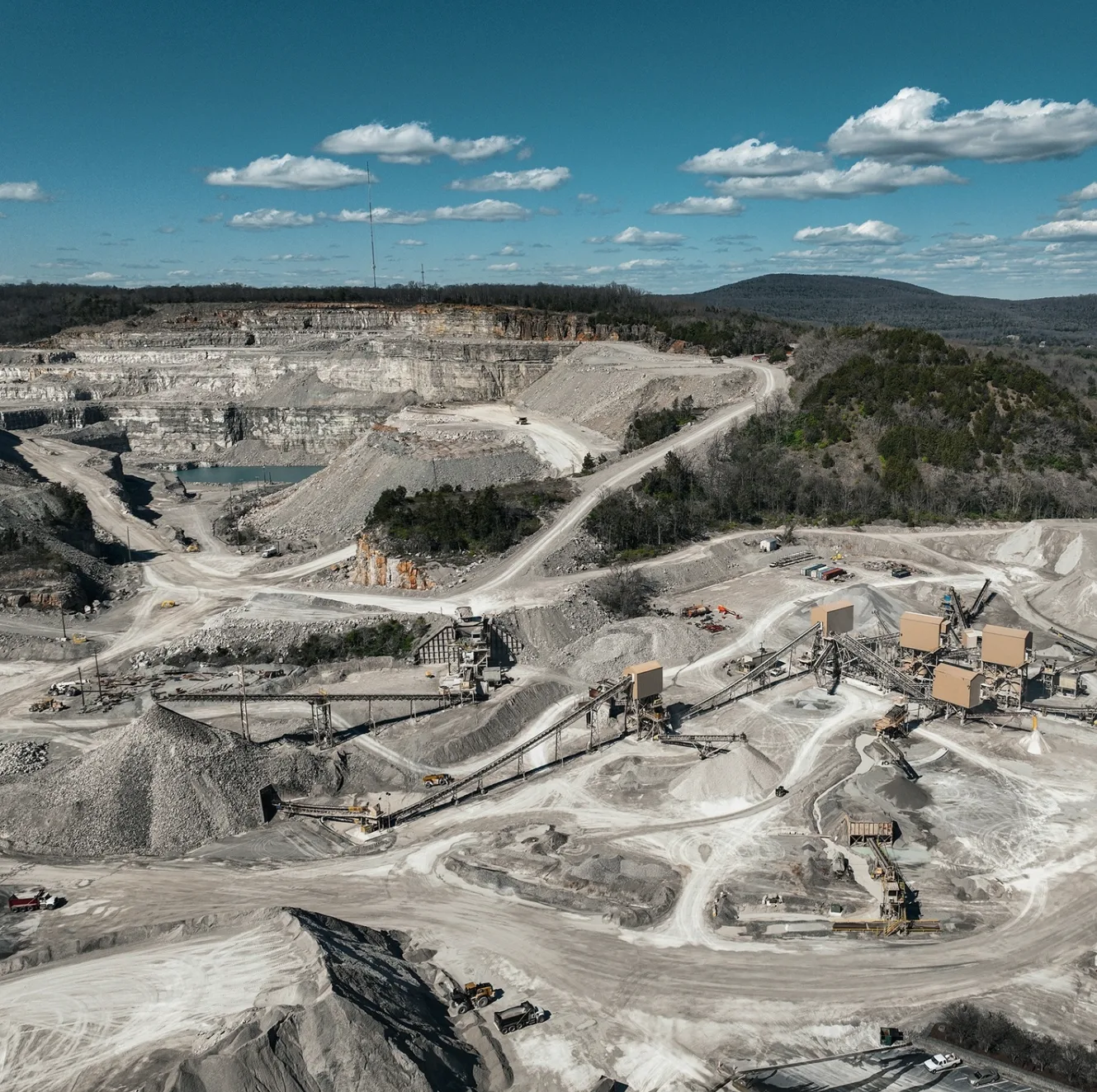SAFE Project’s Senior Director of Workplaces, Cal Beyer, recently interviewed Chad McDougal, Vice President of Safety, Health & Environmental at Vulcan Materials Company. Vulcan Materials Company is a Fortune 500 enterprise with top-down commitment to safety, quality, and sustainability.

Beyer spoke with McDougal about why and how Vulcan Materials Company decided to stock naloxone at all of the company’s operating facilities.
Beyer: When did you and your team decide to stock naloxone in workplaces and on jobsites?
McDougal: We began discussing the issue in late 2023 and decided to move forward with the project in the spring of 2024. The keynote you delivered in Dallas in February 2025 reinforced that we made the right decision to stock naloxone in our operating facilities.
Beyer: Approximately how many employees and total work sites does Vulcan Materials Company have?
McDougal: Vulcan Materials Company has over 12,000 employees working at, in or from approximately 550 operating facilities.
Beyer: Why did you decide stocking naloxone was a prudent risk reduction and worker safety initiative?
McDougal: The opioid crisis is a community-wide issue. The reality is that an opioid overdose can happen anywhere, at any time. By having naloxone available, we are prepared to respond to a medical emergency on our premises, regardless of who is affected.
A secondary reason for stocking naloxone is to foster a culture of safety and support. This initiative sends a powerful message to our employees that their safety and well-being are our top priority. It destigmatizes the issue of substance use disorder and demonstrates that we are a compassionate organization prepared to act and support not only our workforce but the broader community.
Beyer: Your team took a practical and pragmatic approach by considering naloxone to be a necessary tool in the safety toolkit. How did this mindset help reinforce the decision to stock naloxone?
McDougal: We view naloxone through the same lens as other standard safety equipment. Naloxone is the modern equivalent of an Automated External Defibrillator (AED) or fire extinguisher. We have fire extinguishers for the possibility of a fire and AEDs for sudden cardiac arrest. Stocking naloxone for the most common cause of accidental death in many parts of the country is a logical and prudent extension of our emergency preparedness protocol.
Beyer: Was the safety of non-employees on your premises (including visitors, subcontractors, material customers or drivers of haul trucks, etc.) a factor in the decision to stock naloxone?
McDougal: Yes, we had approximately 11 million customers on our properties last year and routinely have outside contractors working at our facilities.
Beyer: What other considerations were factors in deciding to stock naloxone in operating facilities?
McDougal: Time is the most critical factor in an overdose. In an opioid overdose, respiratory depression can lead to permanent brain injury or death in as little as four to six minutes. Having naloxone on-site allows for immediate intervention, bridging the critical gap until professional help arrives and drastically increasing the chance of a positive outcome.

Beyer: What resources did you lean on for guidance in adopting naloxone in your company worksites?
McDougal: Vulcan Materials Company was actively engaged in the Miner Health Partnership Program undertaken by the National Institute of Occupational Health (NIOSH) and in conjunction with the Mine Safety & Health Administration (MHSA). My team and I also relied on publications and resources from various organizations, including:
- Associated General Contractors of America
- National Safety Council (NSC)
- SAFE Project (Stop the Addiction Fatality Epidemic)
- The Alliance for Naloxone Safety in the Workplace (ANSW)
Beyer: How long did it take to complete the roll-out from start to finish?
McDougal: Approximately 11 months. This included the initial planning phase, choosing a vendor, training phase, and then the shipments.
Beyer: Did you decide to use generic naloxone or brand-name Narcan and in what dosage? Did you elect to use the “standard” 4 mg dose and do you have at least 2 doses in all work locations?
McDougal: We utilized both generic naloxone and Narcan in the standard dosage with 2 doses per package. All sites have at least 2 doses.
Beyer: Has Vulcan Materials held a Stand-Down on opioid risk reduction or opioid safety awareness?
McDougal: We developed a training program and the training materials were rolled out in both our weekly safety meetings and our annual safety and health training for our employees.
Beyer: What were the key factors that made the naloxone implementation successful across your organization?
McDougal: The two biggest keys were strong support from senior leadership and the hard work of our Safety and Health leaders. I especially want to acknowledge Lee Travis, our Corporate Occupational Health and Industrial Hygiene Manager, and Tim Driskell, Corporate Safety and Health Representatives, for being the main drivers of the initiative’s success.
Beyer: As we wrap-up, what is one thing you want people to know about naloxone if their employers are hesitating to stock naloxone in workplaces, including operating work sites?
McDougal: Naloxone is safe, effective, and easy to administer. It has no effect on a person who is not experiencing an opioid overdose. The training required is minimal, and its administration is straightforward, meaning almost any employee can be empowered to save a life.
____________________________________________________________________
SAFE Project commends Vulcan Materials Company for the proactive decision to stock naloxone in all operating facilities. Kudos to Chad McDougal and the Safety and Health Team at Vulcan Materials Company for the bold, decisive actions taken to be prepared with naloxone in case of an opioid overdose emergency. Contact SAFE Project if your organization is seeking to do what Vulcan Materials Company has done by stocking naloxone in its operating worksites.
Share Your Story
This epidemic has given us one common experience: we have all become experts in our own way. At SAFE you are in recovery, lost a loved one, or are making a difference in your community, you can help others on this journey. We’d like to hear from you.


